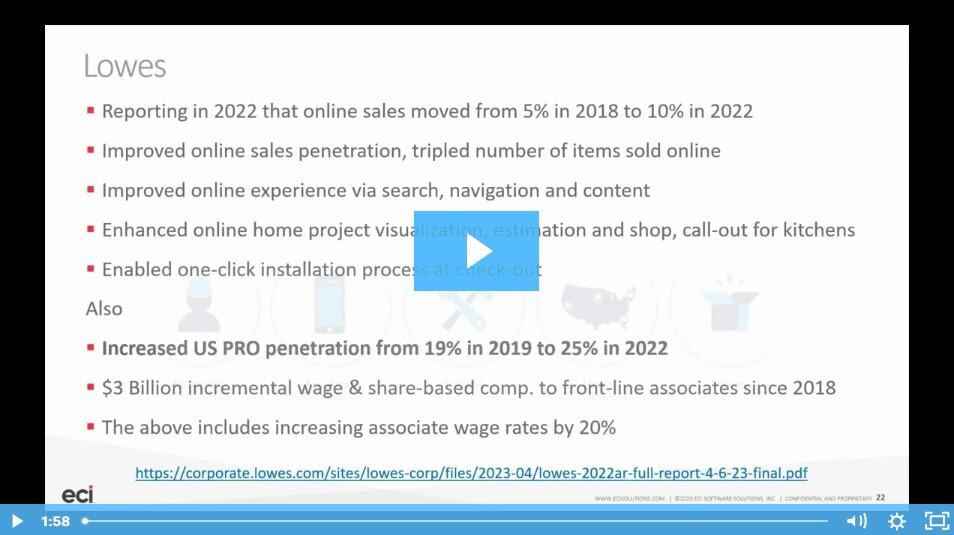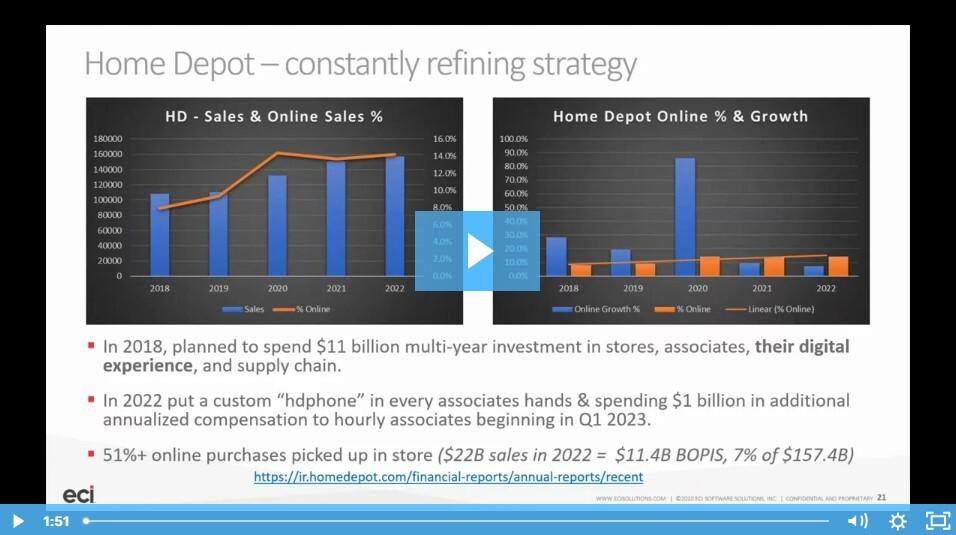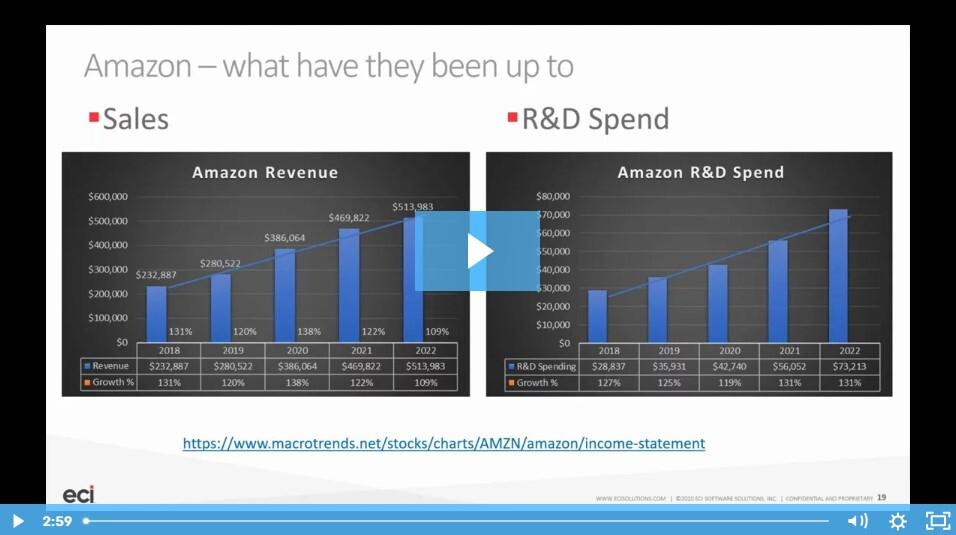Home > Blog
Read Time — 4 minutes
Top 3 Reasons Why Ecommerce is Crucial for the LBM Industry

Are you aware of how ecommerce is transforming the LBM industry? In this post, we'll dive into the top three advantages of ecommerce that can boost your business, from consumer convenience to operational efficiency.
Ecommerce has made a transformative shift in the lumber and building material (LBM) space making it a pivotal force that can no longer be ignored. You can see the importance of ecommerce through the substantial investments made by retail industry giants like Amazon, Home Depot, and Lowe's in developing and enhancing their digital tools.
Big Box stores recognize that ecommerce offers unparalleled opportunities for growth, customer engagement, and operational efficiency. By examining how they invested in tech and online marketing strategies, we can gain insight into the impact ecommerce can have on your business.
1. Enhanced consumer convenience and accessibility
The rise of ecommerce in the LBM space has revolutionized the way consumers engage with products and services. Through digital platforms, customers now enjoy unmatched convenience and accessibility.
Big box retailers have invested heavily in digital tools to provide seamless online shopping experiences. For instance, Amazon offers building materials and home improvement products, enabling customers to find everything they need in one place.
Home Depot and Lowe's have also prioritized ecommerce, with user-friendly websites and mobile apps that allow customers to browse, compare prices, access expert advice, and make purchases from the comfort of their homes.
For example, Lowe’s online sales rose from 5% in 2018 to 10% in 2022. This was due to improved online sales penetration, which tripled online sales. They also increased US PRO penetration from 19% in 2019 to 25% in 2022.

2. Enhanced customer engagement and personalization
Investments in digital tools have enabled big box retailers to enhance customer engagement and deliver personalized experiences. These retailers utilize sophisticated algorithms and customer data to understand individual preferences and buying patterns.
By using this knowledge, they can offer tailored recommendations, personalized promotions, and targeted marketing campaigns. This type of personalized approach helps make customers feel valued.
It also helps that customer reviews and ratings enabled shoppers to make informed decisions based on the experiences of others. These types of engagement and personalization strategies improve customer satisfaction while fostering long-term loyalty and repeat business.
For example, in 2018 Home Depot committed $11 billion to a multi-year investment across their stores to improve their digital experience, supply chain, and delivery methods. This plan included the hiring of 1,000 new technology professionals. In 2022, they put a smart device in every associate’s hand that allows them to locate products, view inventory levels, and even demo products to customers. Their buy online, pickup in-store (BOPIS) strategy made up 51% of online sales.

3. Operational efficiency and supply chain optimization
Big box retailers now recognize the potential for streamlining processes and reducing costs through digital tools. The demand for ecommerce pushed them to. Amazon alone, in just the US, owns 40% of the overall retail market share.
Businesses in this sector have made significant investments in inventory management, order fulfillment, and logistics. These retailers employ advanced technologies like artificial intelligence, machine learning, and data analytics to forecast demand, manage stock levels, and optimize warehousing and transportation.
By implementing efficient order tracking systems, they enhance visibility and transparency, providing real-time updates to customers. Additionally, online platforms enable suppliers and manufacturers to integrate their operations seamlessly, ensuring a smooth flow of products and minimizing delays. The result is a more efficient and cost-effective supply chain that benefits both the retailer and the consumer.

Conclusion
As you can see, big box retailers like Amazon, Home Depot, and Lowe's have recognized the immense value of digital tools and have made substantial investments in their ecommerce capabilities.
By prioritizing consumer convenience, enhancing customer engagement, and increasing efficiency, these retailers have embraced the transformative power of ecommerce. These retailers' continued growth and success serve as a testament to the critical role ecommerce plays in shaping the future of the LBM sector.
There's no denying that ecommerce is revolutionizing the LBM industry by enhancing consumer convenience, customer engagement, and operational efficiency. Embracing these digital tools and strategies is essential for future growth and success in the market. Start leveraging ecommerce to stay ahead of the competition.
If you enjoyed this post, check out other blogs here:
- Where Do I Begin? How to Digitalize Your LBM and Hardware Business
- 3 Advantages of Ecommerce You Should Be Paying Attention To
- Why Ecommerce is Crucial for LBM Retailers in 2023



